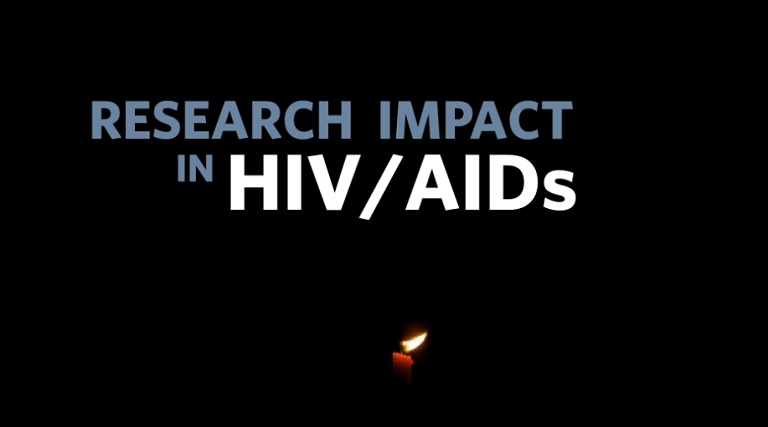Winning the HIV/AIDS Battle
Twenty-five years after UBC began working in the field of HIV/AIDS research, its impact has been felt worldwide through groundbreaking treatment and prevention practices. UBC researchers have played a key role in reducing the mortality rate of this disease since the early 1990s, putting Vancouver on the map as the birthplace of modern HIV/AIDS therapy.
A major discovery in the mid-1990s, made possible due to provincial and federal research funding and a committed team of researchers, resulted in the development of the highly effective HAART treatment (Highly Active Antiretroviral Therapy), announced in 1996 at the 11th World AIDS Conference in Vancouver. By 1999, this treatment had resulted in an 85 percent reduction in the mortality rate of AIDS patients and by 2010, the rate of new cases in BC had dropped to pre-1985 levels. HAART is based on the concept of treatment as prevention, which was acknowledged in 2011 as a major medical breakthrough.
But the work hasn’t ended there. With more than 50 researchers, nine faculties, three tier-one Canada Research Chairs and more than 250 graduate students working to find global solutions, UBC continues to play a major role in HIV/AIDS research.
Last year, researchers received $15 million in funding to continue the fight against the HIV/AIDS virus around the world. In South Africa, for example, Dr. David Speert, Sauder Family Professor in the Faculty of Medicine, is exploring at the results of exposure to HIV in the womb on children’s immune systems. And Dr. Richard Lester, Clinical Assistant Professor in the Faculty of Medicine, who has implemented treatment programs in Kenya using cellphones as a primary motivation tool, received a $100,000 Rising Star grant for his work from Grand Challenges Canada. Those are just two examples among dozens of projects and partnerships in which UBC researchers are involved. And if the last 25 years are any indication, their continued work will undoubtedly continue to change the face of HIV/AIDS around the world.
Related Content

With more than 50 researchers, nine faculties, three tier-one Canada Research Chairs and more than 250 graduate students working to find global solutions, UBC plays a major role in HIV/AIDS research.
